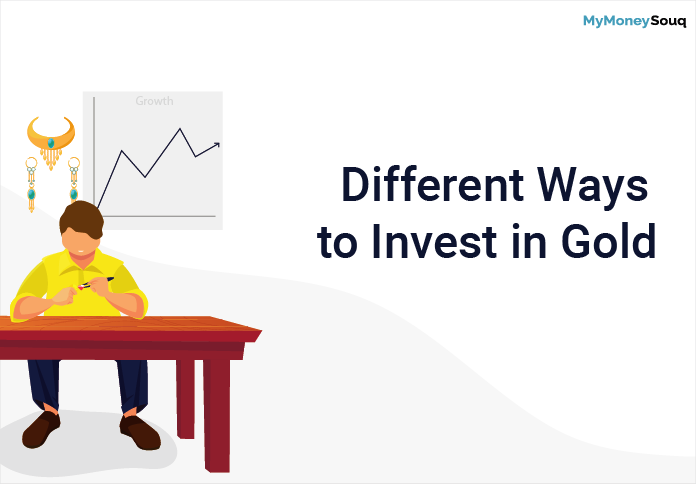Most expats in UAE traditionally invest in Gold in the form of jewelry or gold coins and bullion. Contrary to popular belief, physically buying gold is not the only way to invest in gold. You can invest in Gold in many different ways.
1. Gold Mining Company Stocks
Gold mining companies are in the business of making profits by mining gold. Although the spot price of gold is an important factor in determining the stock price of a gold mining company, the growth and return in the stock depend on the expected future earnings of the company as well.
Factors such as low production costs, the discovery of new mining locations, project development, and price hedging activities are important parameters that can help an investor determine which gold mining company stock should be in their investment portfolio.
Pros
- Good way of tracking the price of gold,
- Investor can get some upside over and above the price of gold.
Cons
- Exposure to gold is indirect,
- Mining operations have operating risks inherent to their business models.
Check: Today’s Gold Rate in Dubai
2. Gold Derivative Products
Before you read further, please note that investing in any derivative product requires a thorough knowledge of financial securities. Investors should take professional financial advice before investing to ensure they make the right investment choice.
Derivatives that invest in gold can take the form of futures, forwards, and options as well. These derivative contracts allow settlement in kind, as well as in cash. Most of the time, investors can trade on margin, i.e the cash deposit paid to the broker is mostly a fraction of the price of the underlying contract. Margin trading is a form of employing leverage in trading.
Pros
- Futures contracts are highly liquid, and
- They require little capital to control a large amount of gold.
Cons
- This is an indirect form of exposure to gold, and
- Contracts are time-limited.
- Leverage is a dual-edged sword. It can multiply profits significantly and losses as well.
3. Gold Certificates
A gold certificate is a document that represents ownership of a specified amount of gold, and they are still issued by some banks and other companies as proof of ownership of the stated amount of physical gold.
Perth mint certificates are an example of Gold certificates.
Pros
- They are a means of direct exposure to gold, and
- They reduce the need to own and secure physical gold.
Cons
- These certificates are only as good as the financial strength of the company that issues them.
- They are mostly illiquid, and very few companies issue them.
4. Gold Exchange Traded Funds (ETFs)
A Gold ETF is an exchange-traded fund that consists of physical gold as the underlying asset being tracked. They are traded on an exchange in a manner that is similar to that of stock trading.
The fund itself holds derivative contracts backed by an equivalent amount of physical gold. Investors who invest in Gold ETFs don’t actually own the physical gold, but the ETF tracks the current spot price of gold.
Pros
- Gold ETFs offer direct exposure to the price of Gold, and
- They are highly liquid.
Cons
- Gold ETFs charge fees, and
- There is no upside over and above the price of gold.
5. Gold ETFs and Mutual Funds based on mining company stocks
Gold ETFs and mutual funds typically invest in companies that mine gold. The value of these funds fluctuates up or down based on the price of the underlying gold company stocks.
Pros
- ETFs and mutual funds based on gold offer good diversification in the portfolio.
- There is a possibility of mining stocks and the fund performing better than the performance of physical gold itself.
Cons
- These funds only offer indirect exposure to gold as an investment.
- Mining operations have inherent risks in their business models.
6. Streaming and royalty companies
Buying stocks of streaming and royalty companies is also a good way of investing in gold. These companies are specialty finance companies that provide cash to mining companies for their operations.
They get paid in gold, allowing them to profit from mining operations of the companies they finance.
Pros
- These stocks are a good way of having diversification in a portfolio.
- They offer an upside over an above the performance of the underlying gold itself.
- It has good margins, and broadly tracks the price of gold.
Cons
- These stocks only offer indirect exposure to gold as an investment.
- Mining operations have inherent risks in their business models.
About the author
Amit is an Independent Financial Advisor, based in Dubai since 1997. He has authored the ‘6-Step Financial Success Course’, and the book ‘Creating, Preserving, Distributing Wealth’. He helps business owners and professionals ‘Create a Second Income’ through investments.


